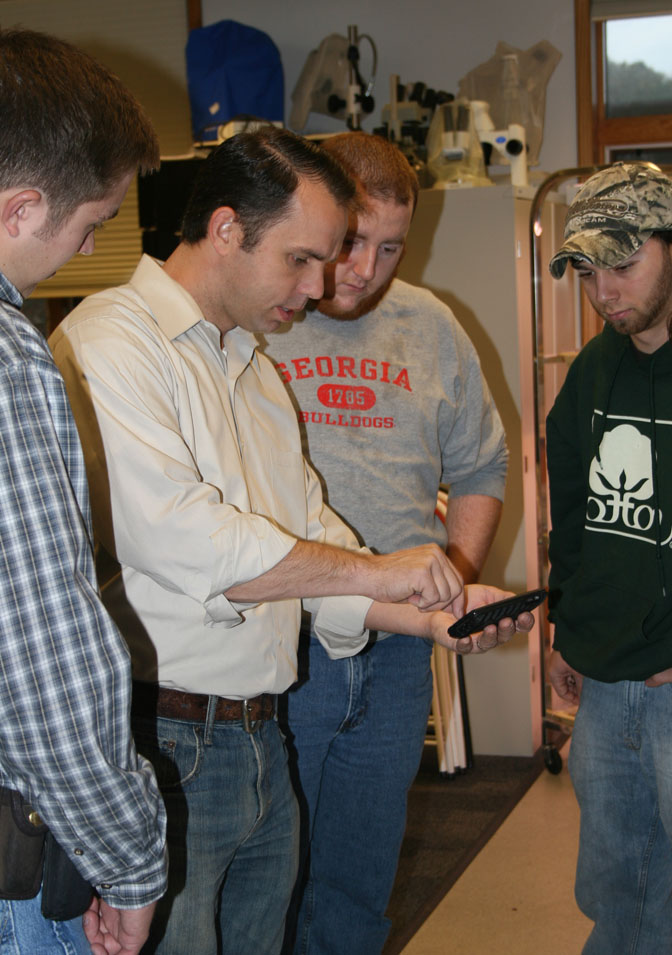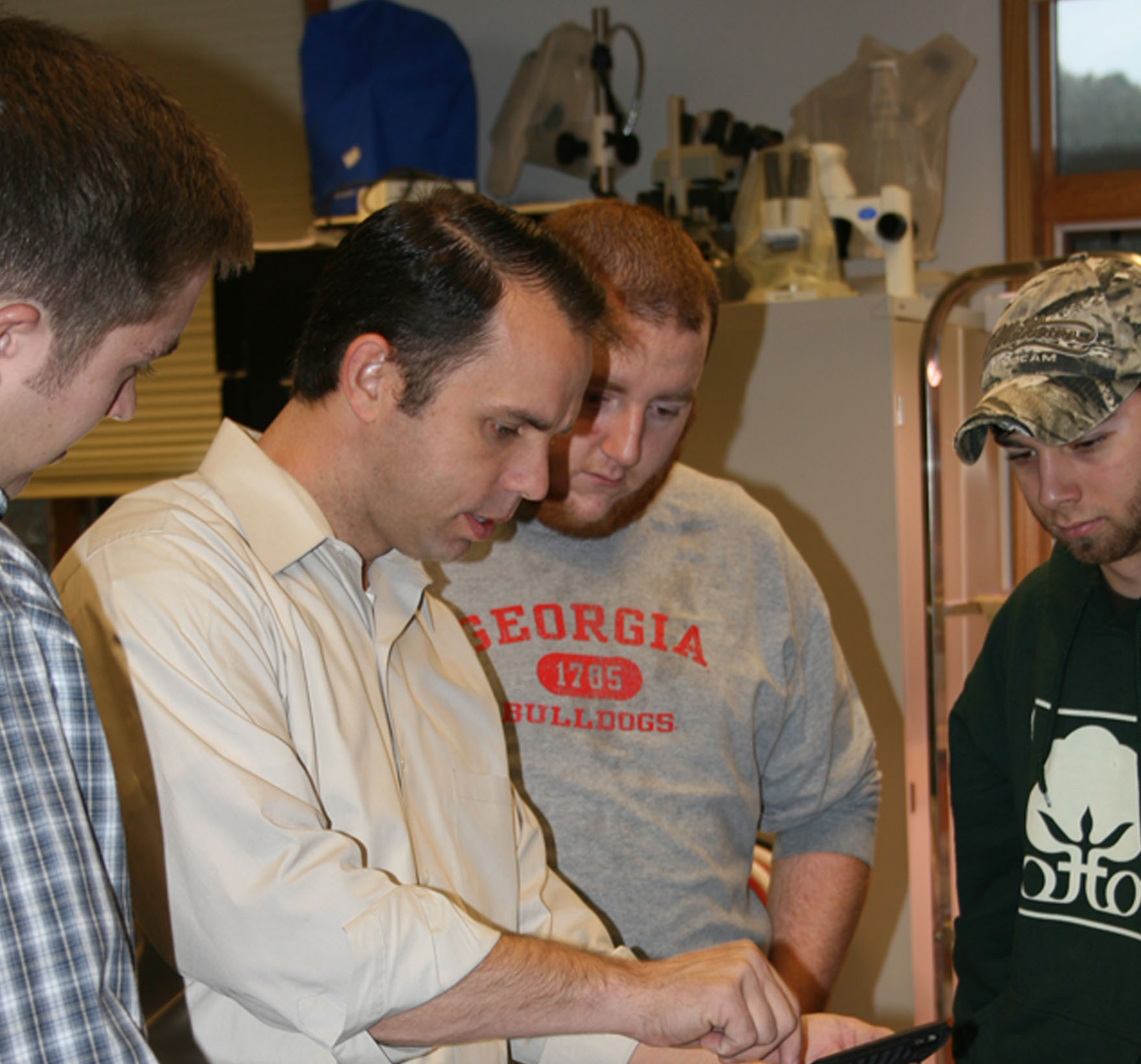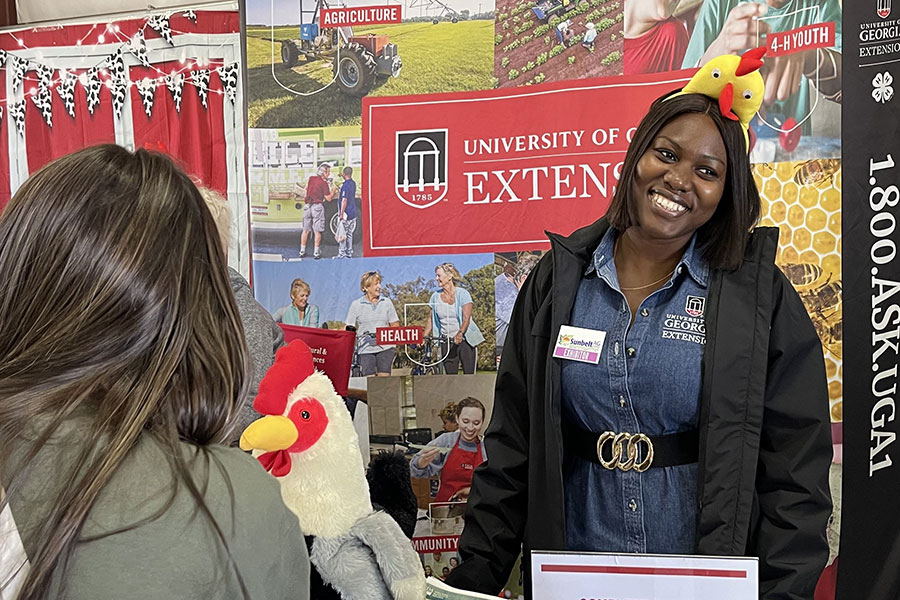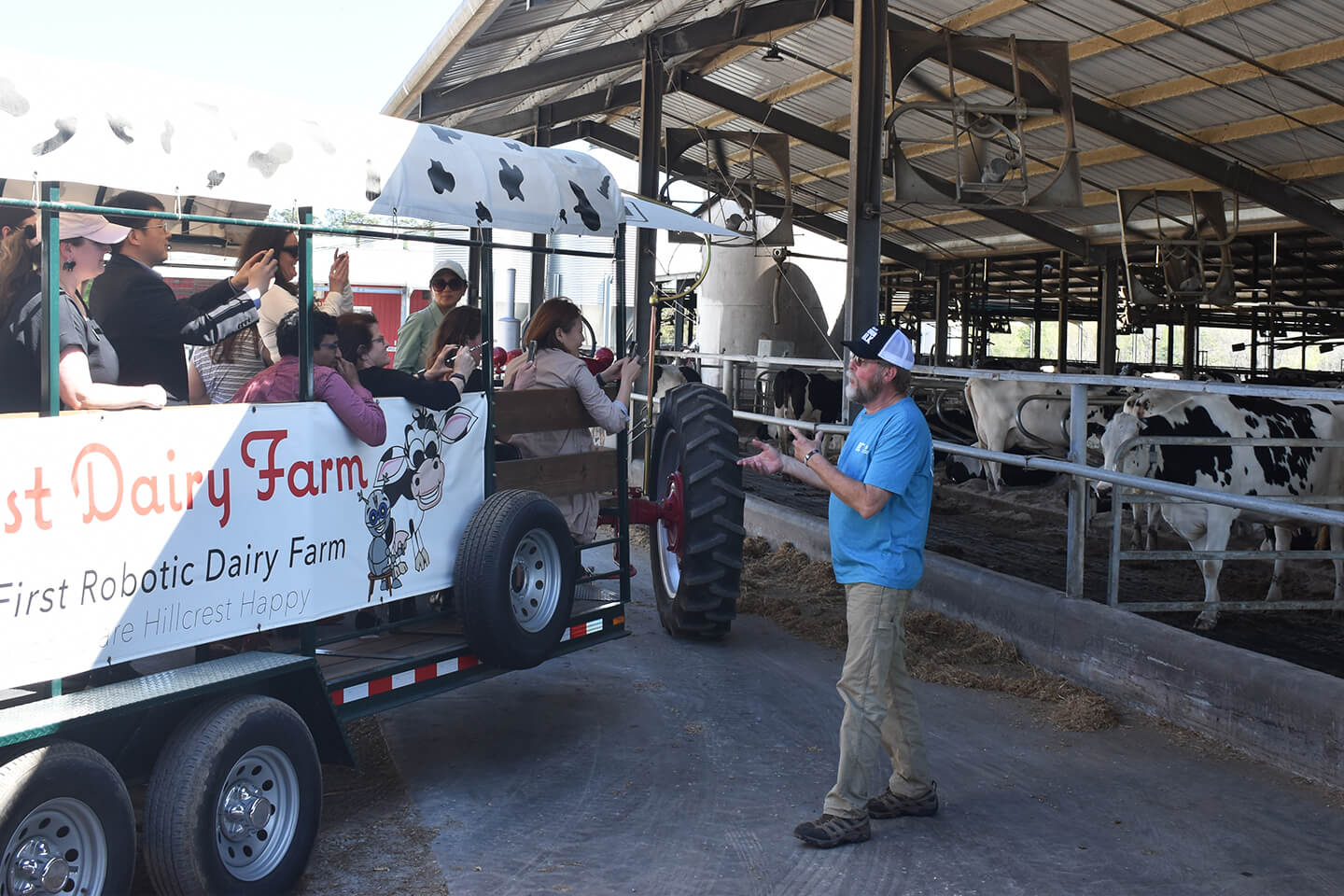The University of Georgia Tifton Campus’ recipe for a successful academic program combines three ingredients: small class sizes, a hands-on learning approach and world-class scientists. The result is an academic program that appeals to individuals vying for top employment opportunities in agriculture.
“I always knew I wanted to work in the science field, and I wanted to go to a school that had a solid reputation in research and education. With that in mind, I felt that the University of Georgia was the only choice,” said Tifton-native Madeline Robertson, a senior biological science major at the UGA Tifton Campus.
Robertson chose the UGA Tifton Campus after talking with the assistant dean of the campus, Joe West. At the time, Robertson was leaning towards attending the UGA College of Agricultural and Environmental sciences in Athens, which also has a campus in Griffin. Once she realized she could receive the same quality education in Tifton from faculty who perform ground-breaking research, Robertson quickly changed her mind.
Robertson exemplifies the UGA Tifton Campus’ “Stay close, go farther” campaign. She is able to stay close to home while receiving an excellent education from a land-grant university.
Her favorite professor is Peggy Ozias-Akins, a geneticist in the CAES Department of Horticulture.
“Dr. Ozias-Akins is incredibly intelligent. In my time spent as one of her students, I have discovered that I really enjoy the lab and research aspect of the science field. I like to know the ‘why’ behind everything, and Dr. Ozias-Akins has fueled my passion to learn more about research,” Robertson said.
Learning from world-renowned scientists is the main reason UGA Tifton Campus graduates are in such high demand by the agriculture industry. UGA is led by professors like John Beasley, recognized across the Southeast as a leader in peanut research; George Vellidis, an expert in precision agriculture and water resources management; Craig Kvien, the braintrust behind NESPAL and the Future Farmstead; Tim Grey, a specialist in weed science; Jim Dutcher, an innovator in the field of entomology; and Glen Harris, an expert in soil fertility.
As if a world-class education isn’t enough of an incentive for prospective students, studying alongside these researchers, who are well connected with agricultural industries, opens doors to future employment opportunities.
“Our students are all getting jobs. They’re all getting good-paying jobs. Our spring graduating class had a 100 percent employment rate and all received jobs within their field of study. Not very many programs can say that in this economy,” West said.
While an enhanced learning experience is a significant part of the UGA Tifton Campus experience, so are small classes. On average there are 50 undergraduate students and between 40-60 graduate students, although, not all are located on campus. Small classes allow students to get personal attention, and UGA Tifton Campus students say they don’t feel like they are just another number.
“I really like the small class sizes,” Robertson said. “I like being able to work with the scientists one-on-one, being able to learn straight from them, having more of a hands-on experience than just sitting in class with 300 other people.”
UGA Tifton Campus admissions counselor Meredith Rutland doesn’t have to look up students’ names when they come by her office. “I love the fact that when students come by my office, I know them by first name.”
“I think the small size of our campus is actually one of the strongest selling points for us,” she said. “Student numbers are always important but by being a fairly small campus, we’re able to retain that component of one-on-one, student-professor relationship.”
For the campus to grow, the campus needs more students, so local recruiting efforts have been ramped up for prospective students. The UGA Tifton Campus offers four bachelor of science degrees: biological science, agribusiness, agriscience and environmental systems, and agricultural education.
Though located in south Georgia, students who study in Tifton can still have the full UGA experience. They can still get football tickets or attend any UGA-sanctioned student event.
“We will continue to get our message out there and let students know about the advantages of earning a UGA degree. The public is realizing the importance of agriculture and that there are good jobs and salaries for graduates in the field of agriculture. A UGA degree has not only excellent value, but also a high level of recognition,” West said.
That message was received recently in Bainbridge when the UGA Tifton Campus and Bainbridge State College signed a partnership agreement. This will allow more south Georgia students to be accepted into the UGA College of Agricultural and Environmental Sciences. Students of course must also meet all requirements.
“We’re very excited about that partnership,” Rutland said. “(President Richard Carvajal) is making great strides to move the field of agriculture to the forefront for Bainbridge State College. I think this partnership is the most significant addition we have had in recent years.”
West credited the state college’s president for his forethought.
“(Carvajal) made an important observation that a lot of students are from a very rural area. Moving to a high-density college town can be intimidating,” West said. “They wanted to use us as a pipeline and a pathway to get students into the University of Georgia with the same quality education, but on a smaller campus.”
For more information about UGA Tifton’s academic program, visit the UGA Tifton Campus students website.








